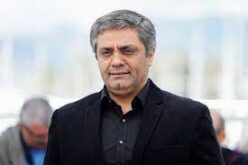Al-Monitor— Israel is increasingly concerned over Iran’s advancement on its nuclear program, yet Prime Minister Benjamin Netanyahu is preventing Defense Minister Yoav Gallant from travelling to the US for security consultations until he himself is invited to the White House.
The frosty relations between the Israeli government and the White House affect both sides. The Americans are now concerned over Israel’s next step on the Iranian file, not sure where Netanyahu is heading.
This situation is hardly new. More than a decade ago, as Israel was debating whether to launch a military strike on Iran’s nuclear facilities, the Israel Air Force carried out a large-scale exercise that included over 100 fighter jets, refueling, reconnaissance and support planes flying westward over the Mediterranean. The route was designed to resemble an attack trajectory toward Iran, albeit in the opposite direction.
Even before the planes landed back at their base, an American Marine arrived at the Israel Defense Forces (IDF) headquarters in Tel Aviv, carrying an encrypted satellite phone. He was shown into the office of then-IDF Chief of Staff Lt. Gen. Gabi Ashkenazi, and handed him the phone. At the other end was Ashkenazi’s Pentagon counterpart, Admiral Michael Mullen, with whom he enjoyed a particularly warm relationship. General, Mullen asked Ashkenazi at the start of the unexpected call, you are not going to surprise us, are you?
Mullen was among a host of top US officials from the Departments of Defense and State, the National Security Council, and various arms of the military who were busy keeping their finger on the pulse to ensure Israel did not go rogue and mount a surprise attack on Iran.
Twelve years on, Benjamin Netanyahu is still Israel’s prime minister. Iran’s nuclear infrastructure is far more developed, largely buried deep underground. Defense Minister Yoav Gallant said on Thursday that Iran had enriched enough uranium to make five nuclear bombs. But one thing has not changed: The Americans still fear a surprise Israeli military attack, and they are once again dispatching senior officials here and making calls to top decision makers to ensure that does not happen.
National Security Advisor Jake Sullivan told a Washington think tank on Thursday that he had spoken the previous day by video conference with his Israeli counterpart, Tzachi Hanegbi, and that Netanyahu joined part of the conversation. Sullivan said Washington is working with allies, including Israel, to deter Iran from developing a nuclear weapon.
The man to focus on is Gen. Michael Kurilla, head of the US Central Command (CENTCOM), who has visited Israel seven times in the 13 months since he took office. Kurilla was in Israel last week, his second visit since the current government was formed in late December (his previous visit was in January).
“Kurilla seems to be trying to come here at least once a quarter,” a senior Israeli military source told Al-Monitor on condition of anonymity. Asked about the purpose of the visits, the official replied: “First, we welcome them very much. Despite the problematic relationship between the White House and the Prime Minister’s Office, intimacy and cooperation between our security agencies and theirs is maintained. Second, there is no denying that they are very interested in our plans on Iran.”
Netanyahu, for his part, seems to enjoy keeping the administration on edge. At the festive Knesset session last week for US House Speaker Kevin McCarthy, Netanyahu mentioned the “largest [joint] military exercise in the history of Israel” recently held with the US military and thanked the Biden Administration for its cooperation. However, as Channel 12 News reported this week, Netanyahu is preventing Defense Minister Gallant from traveling to the United States to meet with defense officials. Netanyahu, according to the report, has banned all of his ministers from meetings in Washington or the United Arab Emirates until he himself is invited to visit there. Asked this week, yet again, about a White House invitation, Sullivan was non-committal.
The astonishing travel ban on members of his government reinforces the understanding that Netanyahu model 2023 is not the cautious, calculated and pragmatic leader that Israel and the world have known during much of his time at the helm. At this sensitive time, with the IDF’s Intelligence Directorate issuing an unprecedented warning of a multi-front conflagration in which the US would be a vital security asset, Netanyahu prefers to keep his defense chief at home rather than approve his travel for sensitive security coordination meetings in the United States, just to engage in arm wrestling bouts with President Joe Biden.
A senior Likud source told Al-Monitor that whereas Netanyahu forbade his ministers from traveling to the UAE in 2021 until he himself was invited on such a visit, a trip to the UAE is mostly symbolic in value while talks by an Israeli defense minister in Washington have important operational, intelligence and strategic aspects. In other words, Netanyahu is holding Israel’s national security hostage in his obsessive campaign to receive an invitation to Washington.
Top Netanyahu aides are busy trying to patch up Netanyahu’s tense relations with Biden and the White House. They include Strategic Affairs Minister Ron Dermer, one of Netanyahu’s closest associates and Israel’s former ambassador to the US, National Security Adviser Hanegbi, Ambassador to the US Mike Herzog, who is highly respected by the administration, and his brother, President Isaac Herzog, whom the Americans see as Israel’s “responsible adult” in the midst of the political turmoil roiling the country. Contacts with these officials also serve US efforts to gage what Israel is planning vis-à-vis Iran.
Iran is also keen to know. Iranian President Ebrahim Raisi made a historic visit to Syria this week, the first in 12 years, which Tehran described as an “important strategic victory”. It is hard to disagree with this assessment.
“There is no escaping the feeling that they are successfully tightening the radical axis of evil,” a senior Israeli political source told Al-Monitor on condition of anonymity. “Whereas Israel was until recently the one that forged anti-Iran alliances and extensive cooperation in the Middle East and beyond, this situation has been reversed. Iran has turned the hourglass upside down,” the source added.
Pointing to Raisi’s trip to Syria that concluded on Thursday, the source saw more worrying signs for Israel. “To see President Raisi watching Israeli outposts on the Golan Heights through binoculars or meeting with the heads of the Palestinian terrorist organizations in Damascus, is not really encouraging,” the source conceded.
 Shabtabnews In this dark night, I have lost my way – Arise from a corner, oh you the star of guidance.
Shabtabnews In this dark night, I have lost my way – Arise from a corner, oh you the star of guidance.



